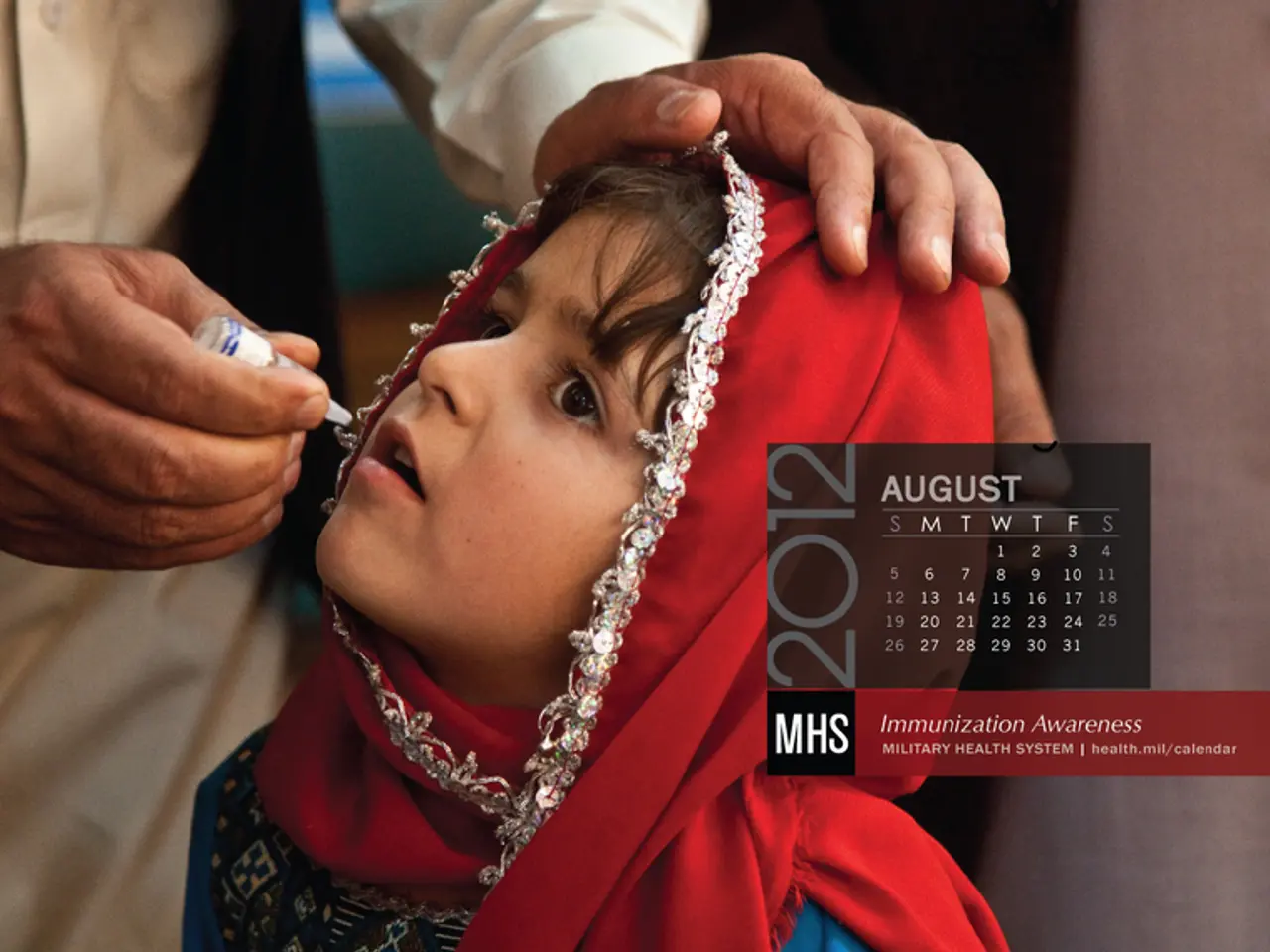Travel Vaccination Requirements: A Comprehensive List
Whether you're embarking on a cruise or venturing to distant lands, international travel can expose you to a variety of diseases and illnesses. To protect your health, it's crucial to consider the vaccinations you need before setting off on your journey.
Common travel vaccines include Hepatitis A and B, Yellow Fever, Typhoid, Polio, Meningococcus, Measles-Mumps-Rubella (MMR), Diphtheria, Chikungunya, and Mpox vaccines for certain areas and risks.
Hepatitis A is recommended for travelers to countries with poor sanitation, while Hepatitis B is crucial if exposure to blood or body fluids is possible. Yellow Fever is required or recommended for many African and South American countries. Typhoid is essential for travel to regions with contaminated food or water, and Polio is necessary for travel to countries where polio persists. Meningococcus is vital for travel to high-risk areas like sub-Saharan Africa, and MMR is especially important as measles is still endemic in many countries. Chikungunya and Mpox vaccines are recommended for travel to outbreak regions or places with recent transmission.
To get these vaccines, consult a local health care provider or travel clinic for personalized recommendations based on your destination and health status. Services like "The Shot Nurse" provide travel vaccines with convenient walk-in or group visits in some U.S. locations, including vaccine consultations and malaria medication prescriptions. Public health departments or travel clinics often offer comprehensive travel immunization services tailored to international travelers.
Because vaccination requirements can vary not only by country but sometimes by specific cities or regions, it is recommended to check official sources such as the World Health Organization (WHO), the Centers for Disease Control and Prevention (CDC), or local health authorities shortly before your trip. Some countries may require proof of vaccination (yellow fever, for example) to grant entry.
In addition to vaccinations, staying healthy while traveling involves being aware of unsafe water, choosing food carefully, and staying hydrated. Cruises can be high-risk environments for respiratory viruses like influenza, COVID-19, and colds due to large crowds.
Remember, identifying the necessary travel vaccines is a personalized process based on your destination and itinerary. To ensure you receive all recommended immunizations and travel health advice, consult a travel health specialist or clinic well before departure.
Researching your destination and protective measures is also advised before traveling. For detailed information specific to each destination, including recommended vaccines, health-related items to bring, travel health notices, and advice on what to avoid to limit disease exposure, visit the CDC's Traveler's Health website.
Safe travels!
References:
- CDC Traveler's Health
- WHO International Travel and Health
- Travel Medicine Resources
- "The Shot Nurse"
- To safeguard your health during travel, especially to countries with poor sanitation, consider getting the Hepatitis A vaccine.
- For travel to regions with contaminated food or water, Typhoid vaccine is essential.
- While traveling to high-risk areas like sub-Saharan Africa, it's crucial to get the Meningococcus vaccine.
- If you're planning a trip to regions with a high risk of Chikungunya or Mpox, consider getting the vaccines for these diseases.




